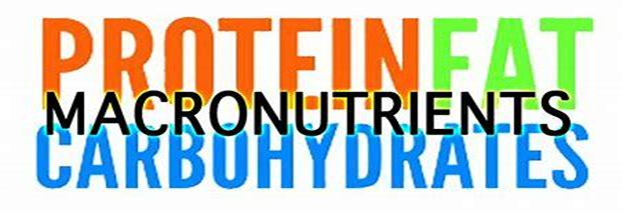We are sure you’ve seen the headlines for the next fad diet or magic pill that is going to help you cure your diabetes or magically help you drop weight that can help with your diabetes. But that’s just not how it works, and what your body with diabetes may need is going to be drastically different than someone without diabetes. We are here to give you facts about food and the nutrients contained in them. We also want to guide and empower you to have a conversation with your doctor or dietitian on the best approach to incorporate macronutrient tracking to help you better control and treat your diabetes.
I would like to take just a minute to introduce myself. My name is Heidi Maynard and I am a registered nurse. I have worked in the critical care realm of healthcare for 12 years, including ICU and the ER. I have seen and treated many patients with chronic disease and just felt for a long time like something was missing in healthcare. My husband and I are both avid fitness folks and for a while we were not seeing the results we desired from our workouts. Through the process of elimination, we tracked this back to our nutrition. In 2020, we started meal prepping for ourselves and posting about our journey on social media. Friends began to ask if we could do the same thing for them, and so our biggest project yet was born, Simply Prepared. In the beginning stages of the covid pandemic, we were both working long hours in the ER and with the fire department all while homeschooling our kids and just trying to stay well ourselves. We continued to meal prep for ourselves and grow our idea.
It became apparent, while growing our idea, that it had begun to take a turn into something much larger for me. I had been treating patients who were having terrible outcomes from COVID, in the hospital, due to their chronic disease states. My mindset shifted, and became certain, it was apparent to me at this time, that there were not enough medical professionals talking to their patients about how to prevent chronic disease and providing empowerment for those same patients to change their lives. I began a six-month journey to become a board-certified nurse coach. A big test followed and here I am, writing my first ever guest blog post as Heidi Maynard, RN, BSN, NC-BC. My hope is, with this information you are empowered to ask questions and consider options, other than additional medications, and that with this information you can become the best advocate for yourself that you can be.
Did you know that 80% of chronic disease can be prevented or treated with healthy lifestyle modifications? This is by far my favorite fact!! So, what do you do at least 3 times a day, besides go to the bathroom? It’s EAT, right?!?! Did you know that your food is actually medicine? In the long run that food is going to be so much cheaper than medication and healthcare costs associated with your diabetes? Okay, stick with me… So just by changing what you put in your mouth each time you eat you can literally treat and prevent chronic disease, including diabetes!! Who doesn’t want to eat better? Feel better? Live a longer, healthier life?
So, let’s get to the “meat” of this post, no pun intended. Macronutrients are what all food is made up of: fat, carbohydrates, and protein. And guess what, WE NEED THEM ALL. Yes, you need fat, you need carbs, and you need protein in a specific balance for YOUR body. We cannot live without anyone of these macronutrients! If you’ve ever been introduced to macronutrients, you may have thought the idea was just for those trying to lose weight or trying to gain muscle. But the truth is, everyone can benefit from being knowledgeable about and even tracking their macronutrient intake. If for nothing more than being aware of what you are consuming on a daily basis.
CARBOHYDRATES… I feel like these sweet things get a bad rap, especially for individuals with diabetes. Carbohydrates are the MAIN and PREFERRED source of energy for our brain and bodies. We have trillions of cells within in our bodies and they all use carbohydrates as an energy source. Carbohydrates are found in a lot of food sources; rice, potatoes, fruits, vegetables, & cakes. All carbohydrates are broken down into glucose within the body. Carbohydrates are further broken down into two main categories: simple and complex carbs.
Simple carbs are just that, simple. They are typically easy to grab (i.e., snack cakes, cookies, chips, etc.) and are processed easily by the body for a quick energy source. Simple carbs are made up of starch, sugar, and fat…. No fiber here. When simple carbs are eaten alone, they can cause a major blood glucose spike and what comes after a spike, but a huge blood sugar drop. When your blood sugar drops your body signals that you need some sugar and this constant battle of never feeling full and reaching for the next quick energy source begins… and sometimes never ends.
Complex carbs contain fiber, vitamins and minerals. Complex carbs can be found in sources such as whole grains, sweet potatoes, beans/legumes, oats, quinoa, and some fruits/vegetables. Because these carbohydrates sources contain fiber, they cause a much slower release of glucose and will cause a much more balanced blood sugar level, especially when combined with fats and protein.
I once heard a funny phrase, and have stuck by it for several years, “Never eat a naked carb.” So, what does this mean… If you want to eat an Oreo cookie, have a handful of peanuts too. If you choose to snack on an apple or banana, have a slice of cheese along with it. The science behind never eating a carb alone, comes back down to the way our body processes and uses that carb and how it affects our blood sugar levels. Carbohydrates paired with the other macronutrients cause less distress on our glucose levels and overall leave us feeling better after meal/snack time. PS…. You will also snack less when you pair your macros correctly, which will lead to less overindulgence.
Understanding carbohydrates and knowing how much to eat throughout the day is very important for diabetic patients. After talking with Dr. Stallings, DNP, APRN, FNP-C, CDCES, BC-ADM and doing a little of my own research, here are the guidelines we see eye to eye on. Women, with diabetes, should eat 125g of carbohydrates through out their day. Typically, 25-35g, each time you eat during the day, split between 3 meals and 1 snack. Men, with diabetes, should eat 155- 160g of carbohydrates throughout their day. And this should be split between three larger meals and 1 snack a day, with a man eating 35-45g of carbohydrates at each meal. Always remember to vary your carbohydrate intake throughout the day. Varying your carb intake throughout the day will lead to more even glucose levels, an improved glycemic index, and overall, a healthier and better feeling you. If you consume any macronutrient more in an amount more than what your body needs at a mealtime or during the day, your body will store it as fat, and who wants that!! We know occasional overindulgence is going to happen, you are going to have those times where you do overeat on those yummy snacks and treats you love so much. So, what do we do after we enjoy a treat or two…. Just go for a walk and leave the guilt at home! Remember carbohydrates are the top energy source for our bodies, so if you exert some energy and move your body for 20-30 minutes you will be just fine. Undereating carbs is a different process all together. If you are consuming less than 100g of carbohydrates a day the potential for starvation ketosis (a metabolic state in which your body burns fat for energy instead of glucose because there isn’t any to use) increases. Starvation ketosis comes from long periods of fasting or elongated periods of underconsumption of nutrients. Any kind of ketosis in patients with diabetes can increase a patient’s risk for diabetic ketoacidosis which is considered a medical emergency. Undereating carbohydrates or under eating in general can cause hypoglycemia and patients must be aware of signs and symptoms, such as sweating, lethargy, lightheadedness, or shaking. Please check your blood sugar if you experience these symptoms and treat appropriately based on the reading.
PROTEINS… Let’s talk protein next. I truly believe as an American society we are truly overfed on fats, sugars, and starches and so underfed on protein and fiber. Protein is so important for building and maintaining our muscles and tissues. We also use protein to synthesize vital hormones and enzymes. Lean protein sources are also so readily available in such items as lean meats, eggs, egg whites, and most dairy sources. Everyone’s daily protein requirements vary depending on their lifestyle and their health diagnoses. I work out and lift weights at least 4 days a week, therefore I eat 1g of protein per pound of my body weight to equal about 130g of protein a day. Yes, I know THAT’S A LOT, but I have goals. Also, when I am consuming enough protein, I am full and satisfied and do not want to eat those simple carb snacks. For those with diabetes, due to the impact diabetes can have on your kidney function, The National Kidney Foundation recommends that 0.8g protein/kg of body weight is sufficient and will, actually help to stabilize your kidney function. This should equate to around 15-20% of your daily caloric intake. I love facts, so here is another, adequate protein intake contributes to the treatment of obesity, which can cause or be caused by diabetes. This is because, like I stated above, protein helps to keep you full longer and it is also extremely thermogenic, which means that it heats up your metabolism and takes a lot of work for your body to process. So, if you are snacking less, and boosting your metabolism, along with incorporating some movement into your daily routine, Wala, weight/fat loss.
FAT… Fat always comes across as… just gross or with a negative context. But not the sources of fat we are going to discuss here. We are talking about good sources of fat, the kind that, when consumed, helps to make up the outer membranes of our cells and carry our fat-soluble vitamins where they need to go in our blood stream. Fat is broken down as energy by the body last. Now I am not suggesting, we eat fried foods dredged in oils, and completely slather everything we eat in a good helping of butter and call our fat intake good. These are sources of saturated fats and when these are overconsumed, we end up with more health problems, such as high cholesterol and heart disease. I want to talk about good, healthy sources of fat, from avocadoes, dairy sources, nuts, nut butters, olives, and fatty fish (salmon, tuna, herring, etc.) Fat should be limited but never avoided, because again it is a macronutrient and is needed by our body. Based on your current weight, healthy conditions and goals, a dietitian could give you more specifics on how many grams of fat you should be consuming each day but it should range from 15-25% of your daily caloric intake.
Visit Heidi at Simply Prepared:
www.simplyprepared4you.com

References:
Rosett. J. & Hu, F. Nutritional Strategies for Prevention and Management of Diabetes: Consensus and Uncertainties. Diabetes Care ( 727-730). 2019.
Gupta, L., Lal, P. & Knandelwal, D. Optimizing Macronutrients in People with Diabetes. Novonordisk Education Foundation (65-71). 2018.

